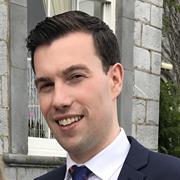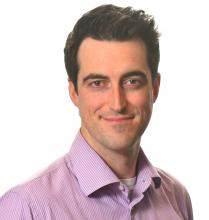Primary Care Research Seed Funding Awards
The Primary Care Research Seed Funding Award, intended to contribute to the pipeline of clinical trials in Irish primary care, is a core activity of the HRB Primary Care Clinical Trials Network.
These awards fund projects up to a value of €10,000, supporting researchers in universities across Ireland to develop highly impactful work, to lead to the leveraging of larger scale research funding in the future.
During our current funding period, we have awarded 6 PIs through this scheme, and you can read about their projects below.
Developing a complex intervention to integrate Community Paramedics in GP Out of Hours Care
PI: Dr Tomás Barry
Affiliation: University College Dublin
Status: Ongoing
When a person becomes unwell outside of weekday 9-5 hours in Ireland, they can currently access ‘unscheduled’ care at an emergency department, via the ambulance service or attend GP Out of Hours. Each year in Ireland there are approximately 400,000 ambulance calls and over a million each of emergency department and GP out of hours visits.
GP Out of Hours is thus a very important component of Ireland’s unscheduled care system alongside the ambulance service and emergency departments. The health service in Ireland does not directly provide GP Out of Hours Services but instead holds contracts with GPs to provide this service. Traditionally this care has always been provided directly by GPs but unfortunately there is now a shortage of GPs in Ireland. There is a risk that GP Out of Hours care may no longer be available in the future. If this happens more people will need to call the ambulance service or attend emergency departments. Both the ambulance service and emergency departments are also currently experiencing significant pressure. If more sick patients access these services, all patients will have to wait longer for care and some patients who have time critical conditions could suffer complications or even death as a result.
International research has shown that Paramedics with additional training may be able to provide some GP Out of Hours care working alongside GPs. In Ireland, the Ambulance Service has recently developed new roles for senior paramedics that are designed to allow patients to receive care from the ambulance service in the community without having to go to hospital. We now want to explore whether we can capitalise on this to develop and then test a new system of care where paramedics work alongside GPs in GP Out of Hours settings. If this proves safe and effective it could ensure GP Out of Hours remains viable into the future.

Optimising Long Covid management in general practice: a pilot feasibility trial
PI: Prof Walter Cullen
Affiliation: University College Cork
Status: Ongoing
Long Covid is a complex health problem that can follow COVID-19 infection. It can have many different symptoms (e.g., fatigue, shortness of breath, chest pain, fever, heart palpitations, muscle/joint aches, problems with concentration and memory, headaches, seizures, dizziness) and in some cases it can persist for several months. It is unclear how many people are affected by Long Covid, but a recent survey shows that around 10% of people in Ireland that have had COVID-19 have experienced Long Covid symptoms.
Research indicates that General Practitioners (GPs) are ideally positioned to manage the long-term complexities of Long Covid symptoms. Unlike hospital-based doctors who are qualified to address very specific kinds of medical problems and have limited long-term availability for patients, GPs excel at managing a wider range of health issues andthey can offer greater ongoing and person-centred support for patients.
However, we cannot be certain about the extent to which GPs are suited to managing Long Covid. No clinical trials assessing the value of GP-led Long Covid interventions have been conducted to date. This study will take steps towards addressing this problem. It will do so by evaluating the feasibility of a pilot clinical trial aiming to enhance health outcomes among patients with Long Covid at six general practices in the Ireland East region. The intervention will be co-designed by GPs and Long Covid patients. It will then be delivered in two stages with GPs first attending a GP-led Long Covid educational session and thereafter conducting in-depth reviews of Long Covid patients’ health records. The pilot intervention’s feasibility will be assessed by determining the intervention’s likely effect on patients’ Long Covid symptoms, study participants’ engagement with the project, barriers and facilitators that improve or hinder the intervention’s success, and the impact that the intervention has on the subsequent healthcare service usage of patients.
The study will aim to make a meaningful contribution to future research, health policy, and clinical practice initiatives around the topic of Long Covid management in general practice. Study findings will inform applications for funding to support larger and thus more impactful studies examining GP-led Long Covid interventions in the future.

Look, Feel, Tell: A breast awareness intervention for women with intellectual disability
PI: Dr Elaine Lehane
Affiliation: University College Cork
Status: Completed
Project Aim: To develop the programme theory, through logic modelling, of the ‘Look, Feel, Tell’ breast awareness intervention for women with intellectual disability.
Conclusion and Next Steps: We have successfully developed and refined a structured programme for breast awareness education for women with intellectual disabilities. This included the creation of a Logic Model and Programme Theory, ensuring alignment with evidence-based behavior change frameworks. Stakeholder engagement and PPI involvement played a key role in shaping the programme, enhancing its relevance and feasibility. The project also led to new collaborations, including links with Ernst & Young, the HSE Cancer Prevention Unit, and the National Breast Screening Service, which may support future research and integration into healthcare strategies.
A research paper is in preparation for submission to the Breast Journal, contributing to the academic evidence base. An application for a DIFA feasibility trial is being explored to assess the programme’s potential for implementation and scale-up. Additionally, early discussions around a PhD fellowship with Ernst & Young could provide a pathway for further research. Partnerships with national cancer prevention services may offer opportunities to align ‘Look, Feel, Tell’ with existing health promotion frameworks, supporting its longer-term sustainability.

Refining the Choosing Health Infant feeding for Infant Health intervention and implementation strategy: Re-CHErIsH
PI: Dr Karen Matvienko-Sikar
Affiliation: University of Limerick
Status: Completed
Project Aim: This project aimed to refine the recruitment processes and delivery of the CHErIsH intervention in order to maximise the likelihood of successful future implementation and evaluation. By doing so, the Re-CHErIsH project will address key uncertainties about CHErIsH recruitment processes and intervention delivery.
Conclusion and Next Steps: Clear refinements that are acceptable to parents/caregivers and can potentially be implemented in practice were identified in this study. Potential refinements to the intervention and the trial processes were developed from review of feasibility study findings, along with input from the multidisciplinary team. Parent/caregiver attitudes about these refinements were evaluated with an online mixed-methods survey. Results of the survey provided support for the majority of proposed refinements; including PHNs in intervention delivery, incorporating additional intervention delivery timepoints, online intervention delivery, antenatal recruitment, and updated recruitment processes are feasible and acceptable from a parent/caregiver perspective.
Findings from the current study provide important insight into the needs and preferences of parents/caregivers with regard to the CHErIsH intervention. However, the refinements to the intervention and trial processes endorsed by parents/caregivers would necessitate changes to current practice, that in some cases, are not insignificant (e.g., online intervention delivery). It is necessary therefore to gather input from HCPs about these proposed refinements to ensure they are acceptable and feasible in practice. HCP insights shall be explored via a series of semi-structured interviews, following which refinements to the CHErIsH intervention and trial processes shall be agreed upon via the stakeholder consensus meeting.
Following completion of this study, we will apply for the HRB Investigator-Led Clinical Trials (ILCT) Programme to conduct a randomised pilot study, with pre-specified progression criteria, of the refined CHErIsH parent-level intervention, and the HCP-implementation strategy. The purpose of this pilot study will be to examine the refined CHErIsH intervention and trial processes, before progressing to a future definitive trial. As such, the pilot study will be followed by a subsequent application for a HRB ILCT to conduct a definitive trial of the CHErIsH intervention, assuming progression criteria are met. Subject to the findings of the definitive trial, funding such as the HRB Applied Partnership Award, will be applied for in the future to plan for and initiate scale-up and long-term implementation of the CHErIsH intervention at a national level to support parents to optimise infant feeding with the aim of preventing childhood obesity.

Design and Development of a Lung Cancer Screening Recruitment Tool
PI: Prof Patrick Redmond
Affiliation: Royal College of Surgeons, Ireland
Status: Ongoing
Lung cancer is a major cause of cancer-related deaths worldwide. Detecting lung cancer early through screening can greatly improve patients’ chances of survival – unfortunately, the experience internationally is the uptake of lung cancer screening is very low. This research study aims to create a tool to encourage more people to participate in lung cancer screening.
In this study, we will use a step-by-step approach called the Medical Research Council (MRC) Framework for Complex Interventions to develop the tool. First, we will review existing research to understand the key elements of successful programs and what motivates people to participate in screening. Then, we will interview patients, doctors, researchers, and potential screening participants to gather their feedback and make improvements prior to presenting a final tool ready for feasibility testing.
This study will lead to the creation of a tailored tool to encourage more people to participate in lung cancer screening, based on the challenges and factors that affect their decision to join the screening process.
This research aims to improve lung cancer screening participation by creating a tool that uses a proven, step-by-step approach. The findings will be important for doctors, public health workers, and policymakers, as they work together to improve lung cancer screening practices, use resources efficiently, and ultimately help save more lives.

Examining healthcare professional perspectives, and reaching agreement on refinements to CHErIsH
PI: Dr Karen Matvienko-Sikar
Affiliation: University of Limerick
Status: Ongoing
The CHErIsH (Choosing Healthy Eating for Infant Health) program was created to help parents feed their babies and prevent childhood obesity. Initial examination of CHErIsH suggested that some components, like the number of times people received information and from whom they received information, could be improved. Potential changes to improve the intervention and how it could be examined, were developed as a result. In a national survey, parents reported that the suggested changes were acceptable to them, but we still need to know if healthcare professionals (HCPs) think these changes will work well in practice.
The aims of this project are to:
- Explore HCPs perspectives on the proposed changes to the CHErIsH program and how it is examined are feasible and acceptable.
- Finalise the changes to the program and how it is
This project will be conducted in two stages:
- Stage 1: Healthcare professionals (e.g., GPs, public health nurses, practice nurses, dietitians) will be interviewed to find out what they think about how well the proposed changes will work in real-world settings. After gathering feedback, the program will be adjusted, if needed, before moving to Stage
- Stage 2: A meeting with about 15 stakeholders (including HCPs, policymakers, and parents) will be held to discuss and finalise the Stakeholders will discuss and rate the proposed changes and come to a consensus agreement about the most feasible and acceptable refinements to CHErIsH to make sure it is as effective and practical as possible.
This project will address any remaining questions about the feasibility and acceptability of the proposed changes to the CHErIsH program and how it is examined, ensuring the program can be successfully tested and used in the future.


